Edition
EDITION
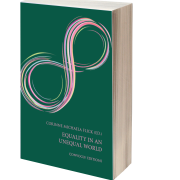
Equality In An Unequal World
Inequality and diversity are basic characteristics of being human. We want and need a high level of equality as the foundation of society and as an expression of justice. Under the theme “Equality in an Unequal World,” Convoco discusses questions on the equality of opportunity and outcome, on the role of competition, and how social demands and state intervention in the name of equality can be reconciled with individual freedom. In the background always stands the principle of treating equals equally and unequals unequally. As the world faces global threats that have the potential to massively exacerbate existing inequalities, it is today more important than ever to take the concept of equality into our focus. Read more
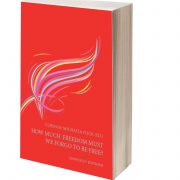
How Much Freedom Must We Forgo to Be Free?
Freedom is a fundamental good. But it can only be experienced in a context of meaning, and exists in a state of tension with other values. Freedom is not a natural given but rather results from the interplay of socialization and constraints. Rules and laws are needed to maintain freedom, to guarantee it permanently, and to shape it.
But what do challenges such as pandemics, climate change, digitalization, and the intensifying systemic competition with authoritarian states mean for our freedom? When can and should the state restrict freedom? Are we seeing a shift in the scale of values in favor of equality and justice at the expense of freedom? What responsibility do we bear for the freedom of future generations? One thing is certain: society’s understanding of the structure of relationships in which freedom is possible is changing. Read more
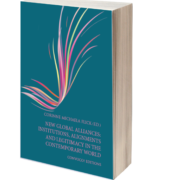
New Global Alliances: Institutions, Alignments and Legitimacy in the Contemporary World
For a long time, international institutions have formed the foundations of rule-based cooperation between states. However, they now find themselves under increasing scrutiny and have become the arena of geopolitical conflicts. At the same time, we are witnessing the development of new formations and the growing influence of non-state actors on the world stage.
This book investigates the following questions: what are the new partnerships and cooperations arising from today’s challenges? Where do actors derive their legitimacy? How can we revitalize the rule-based cooperation of states and reform institutions? A growing awareness of our global, collective interdependence and how this relates to structures of power forms an important backdrop to this investigation. Read more
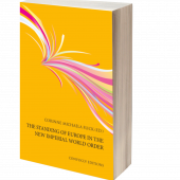
The Standing of Europe in the New Imperial World Order
Europe is in transition between independent nation states and a unified Europe. The EU’s crises-financial, migrant, Brexit-are threatening the European idea. In addition to the idea of Europe as a peace project, we need more meaningful narratives to create a Europe-wide feeling of togetherness that is emotionally underpinned.
The question is this: how can we create European unity out of national diversity? European unity seems to be more important than ever in tackling today’s global challenges. It is time to examine Europe’s fundamental values, concepts, and identities and to consider what Europe has to offer the world. Read more
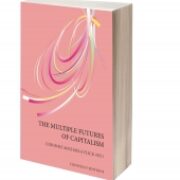
The Multiple Futures of Capitalism
In our rapidly changing world, the future of our economic system—capitalism—seems more unpredictable than ever. Digitalization is already having a significant impact on the labor market. Intensive globalization has led to the emergence of new forms of capitalism that are very different from the Western free market economies. And contemporary critiques of capitalism present another challenge to our economic system.
This volume looks at capitalism’s future from different perspectives and tries to find possible creative approaches to the current challenges. The aim is not to abandon the current economic system in its entirety, but to look forward constructively and critically and thus to shape the future not only of our economy but of our society as well. Read more
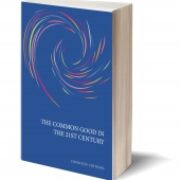
The Common Good in the 21st Century
In the recent past, the common good has seemingly disappeared as the leitmotif of our society. In a world where nationalism is gaining power and society is increasingly divided into fractions, “The Common Good in the 21st Century” is a controversial topic. We need to recenter the common good in our contemplations, but also reevaluate what it means. It is more than just the sum of individual interests, the common good is a fundamental condition for individual self-expression and growth. Only by considering this, we can stop the developments that increasingly turn a “we” into an “I”.
This edition illuminates the multi-facetted nature of the common good on global and national levels. It sets the common good in relation to the state, investigates the role of business in creating the common good, and elaborates on the meaning of this politically charged term for the 21st century. Read more
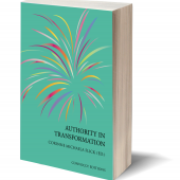
Authority in Transformation
This Convoco edition discusses connection between authority, power and responsibility, as well as representative and direct democracy. Guiding questions in this volume are: Is law increasingly losing authority? Is direct democracy the solution or will popular vote undermine our representative democracies? Can more authority be useful in overcoming international crises? Read more
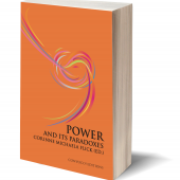
Power and its Paradoxes
The Convoco edition discusses the interaction of power and powerlessness from different angles and asks how politics and scientific consultation interrelate. Who has power over the Euro? How powerful is the ECB? How do we deal with geopolitical disintegration of power? What role does the power of data play? What needs to change about our understanding of power in order for it to be in keeping with the times and not become powerless? Read more

To Do or Not To Do: Inaction as the Most Challenging Form of Action
Conscious refraining from action is the main theme of this publication. ‘Not-doing’ is not just an alternative to ‘doing’, but – in times, which are characterized by constant fluidity –maybe it is the more demanding for m of action. This is because it takes more power and strength to refrain from action than to do something, if both forms of action are a possibility. To act can not necessarily be compared to/put on the same level with efficient, sustainable action. With the intention of reaching long term goals, it is necessary to refrain from the obvious/ to act in the most obvious ways.
It is not easy to decide between doing and not-doing. One has to be extremely confident to choose not to do something. It is often more challenging to justify.
Through inaction we can create important spaces to think and be in an unrestricted manner. For this reason, one only starts to understand what is truly essential by consciously not-doing something. When talking about inaction, we are talking about the responsibility for the impact of one’s actions.
The main aim is to limit the negative consequences of one’s actions. To refrain from action ideally should be a societal guideline for knowing action’s metes and bounds. Read more
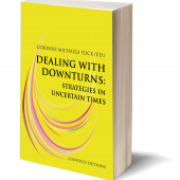
Dealing with Downturns: Choices and Strategies in Uncertain Times
It is inherent in the nature of action in an uncertain world that we must deal with both success and failure. Therefore strategies are essential in today’s competitive world. They can make the difference and turn a disadvantageous situation into success.
The importance of strategy and what it means, as well as the historic view of strategy are addressed in this latest Convoco! Editions publication dealing with themes of freedom, intuition and law. Read more
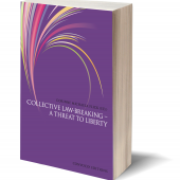
Collective Law-Breaking: A Threat to Liberty
The phenomenon of collective law-breaking is the central issue in this volume, confronting the question to what extent our society observes principles and laws. Therefore, it is illuminated which law-breaking is committed as a collective. The focus lies not only on collective individual behavior but also on collective state action, with a special emphasis on the European economic and monetary union.
This volume combines the thoughts and perspectives of various authors from different disciplines. Next to legal questions and aspects, economic and philosophical dimensions of collective law-breaking are explored. Read more
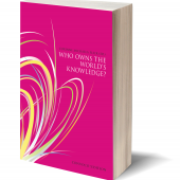
Who Owns the World´s Knowledge?
“Knowledge is power”, Thomas Hobbes wrote nearly half a millennium ago. If knowledge is indeed a source of power, the question “Who owns the world’s knowledge?” is paramount. It is an important but difficult question, to which there are no simple answers. Yet, it is clear that knowledge is losing its elitist character and flattens onto the democratic body.
This volume investigates the causes of global knowledge inequalities and points at possibilities how the digital age can empower a just redistribution of knowledge. Read more
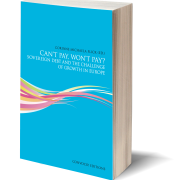
Can´t Pay, Won´t Pay?
Cant´t Pay, Won´t Pay? Sovereign Debt and the Challenge of Growth in Europe

